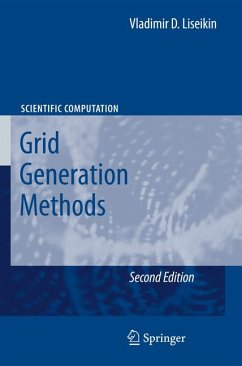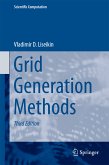This book is an introduction to structured and unstructured grid methods in scientific computing, addressing graduate students, scientists as well as practitioners. Basic local and integral grid quality measures are formulated and new approaches to mesh generation are reviewed. In addition to the content of the successful first edition, a more detailed and practice oriented description of monitor metrics in Beltrami and diffusion equations is given for generating adaptive numerical grids. Also, new techniques developed by the author are presented, in particular a technique based on the inverted form of Beltrami's partial differential equations with respect to control metrics. This technique allows the generation of adaptive grids for a wide variety of computational physics problems, including grid clustering to given function values and gradients, grid alignment with given vector fields, and combinations thereof. Applications of geometric methods to the analysis of numerical grid behavior as well as grid generation based on the minimization of functionals of smoothness, conformality, orthogonality, energy, and alignment complete the second edition of this outstanding compendium on grid generation methods.
Dieser Download kann aus rechtlichen Gründen nur mit Rechnungsadresse in A, B, BG, CY, CZ, D, DK, EW, E, FIN, F, GR, HR, H, IRL, I, LT, L, LR, M, NL, PL, P, R, S, SLO, SK ausgeliefert werden.
Hinweis: Dieser Artikel kann nur an eine deutsche Lieferadresse ausgeliefert werden.









